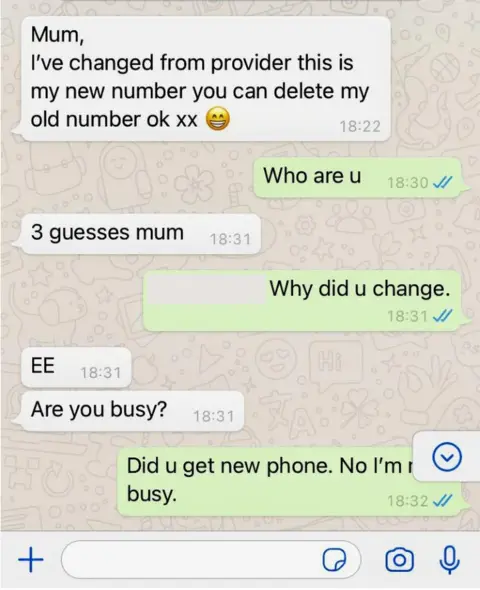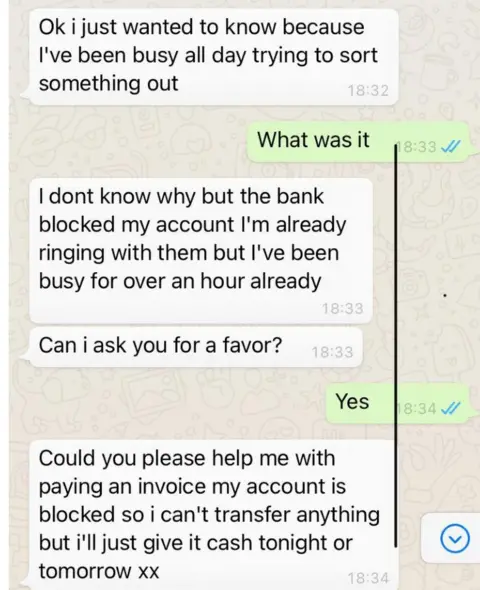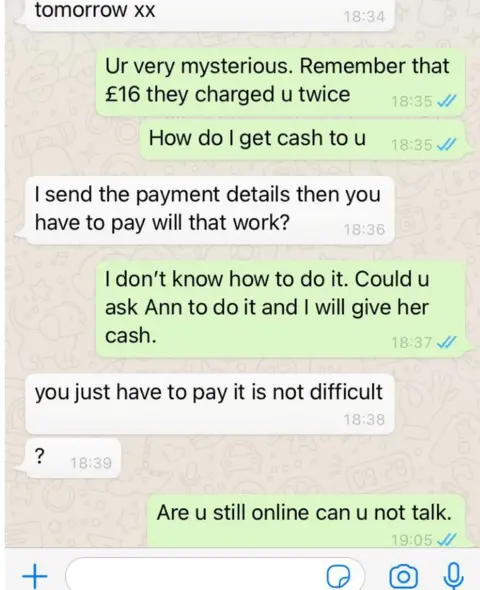WhatsApp scam: More than £65,000 lost over fake 'family member' messages
 Getty Images
Getty ImagesPeople in Northern Ireland who have fallen victim to a new phone scam have lost in excess of £65,000, according to police.
The scam usually involves a WhatsApp message, but sometimes a call or text, from someone claiming to be a family member.
Their main aim is to encourage recipients to transfer money.
Police have issued a warning to the public following a rise in cases, particularly involving older people.
Police Service of Northern Ireland (PSNI) Supt Gerard Pollock, chairman of the ScamwiseNI Partnership, said the scam started to make an appearance in Northern Ireland in September.
To date, police in Northern Ireland have received 110 reports relating to this specific scam.
"In each case, a person purporting to be a family member, often a daughter or son, asks for money," Supt Pollock said.
"Typically, the 'child' is short of money or late paying bills, and asks the recipient to transfer money into an account.
"This is backed by a story that he or she has recently changed their phone or phone number."
 PSNI
PSNI PSNI
PSNI PSNI
PSNISupt Pollock described the scam as a "despicable" act that is taking advantage of a person's willingness.
In some cases, victims have been careful enough to check with the relative before transferring money and then realise it is a scam.
But that has not always been the case.
"Just last week, one victim lost £6,000 after receiving one of these messages," Mr Pollock said.
"We've seen victims from Northern Ireland lose in excess of £65,000 to this scam.
"The amounts of money vary from victim to victim.
"In some cases that has been as low as £20, all the way up to £15,000."
What can I do to help?
Police are asking people to alert family members to the scam, particularly those who are elderly.
If you get one of the scam messages, members of the public are advised to contact family members on their usual phone numbers.
Supt Pollock said: "Don't get into a text or WhatsApp conversation with scammers. Spot it. Stop it."
If you receive a suspicious message via email, website or text message, you can take the following actions:
- Email - if you feel unsure about an email you have received, you can forward it to the Suspicious Email Reporting Services at [email protected]
- Website - If you have come across a website which you think is fake, you can report it here - https://www.ncsc.gov.uk/section/about-this-website/report-scam-website
- Text message - Report suspicious text messages for free to 7726. Your provider can investigate the text and take action if found to be fraudulent.
There is more information about scams and staying safe from scammers at www.nidirect.gov.uk/scamwiseni or via the ScamwiseNI Facebook page.
Concerns or scams can be reported to Action Fraud via their website www.actionfraud.police.uk or by phoning 0300 123 2040.
You can also call police on the non-emergency number 101.
